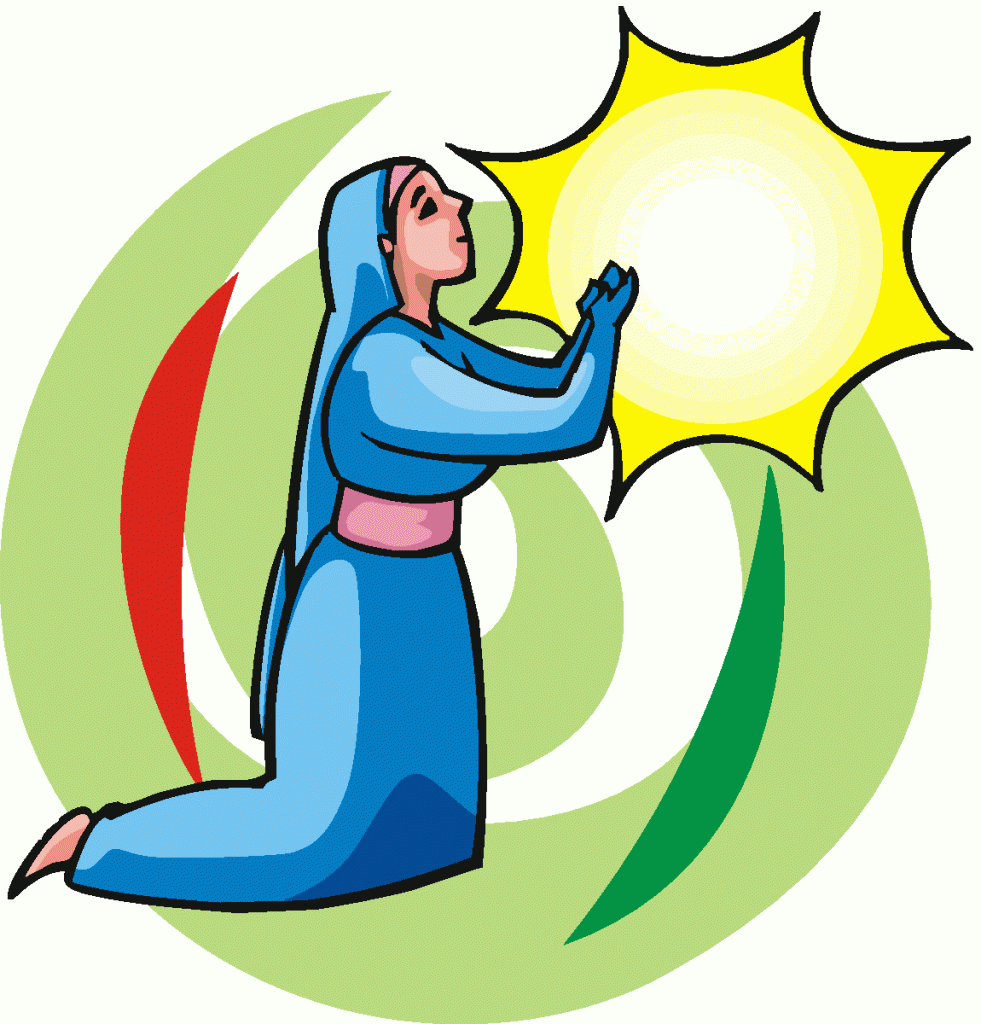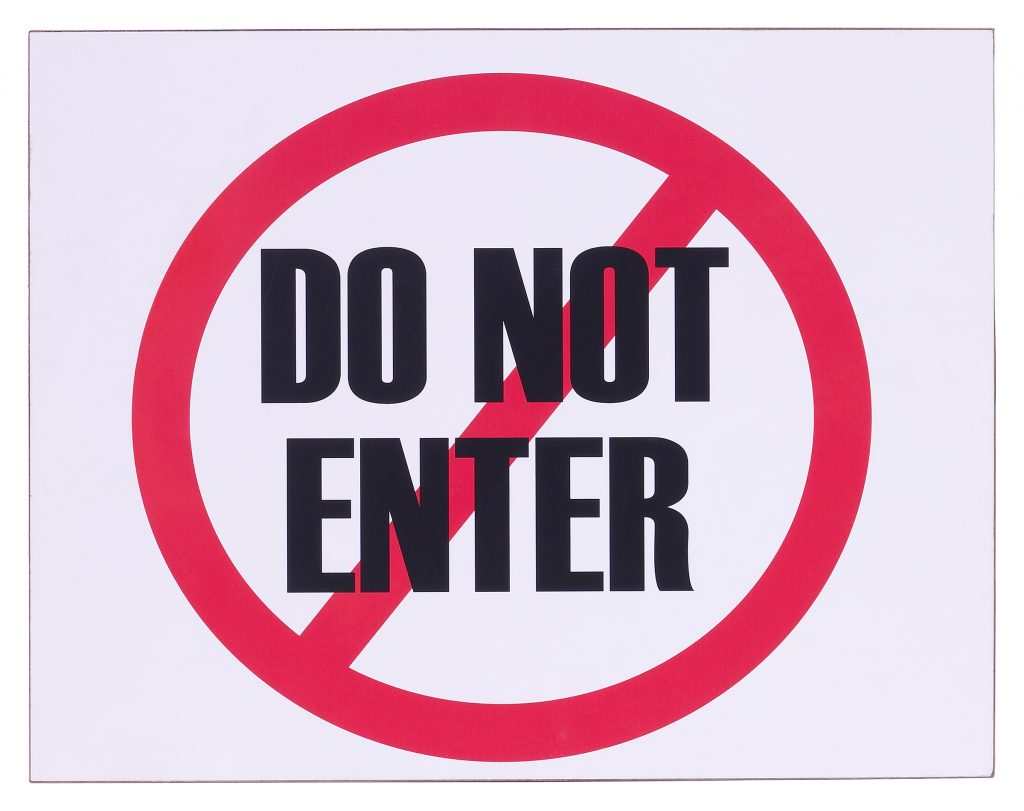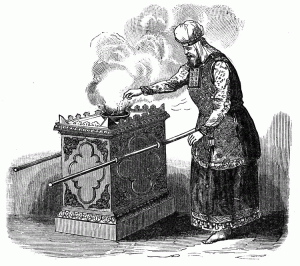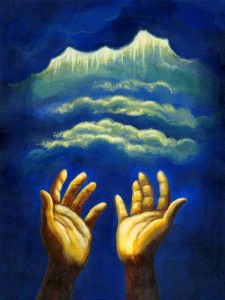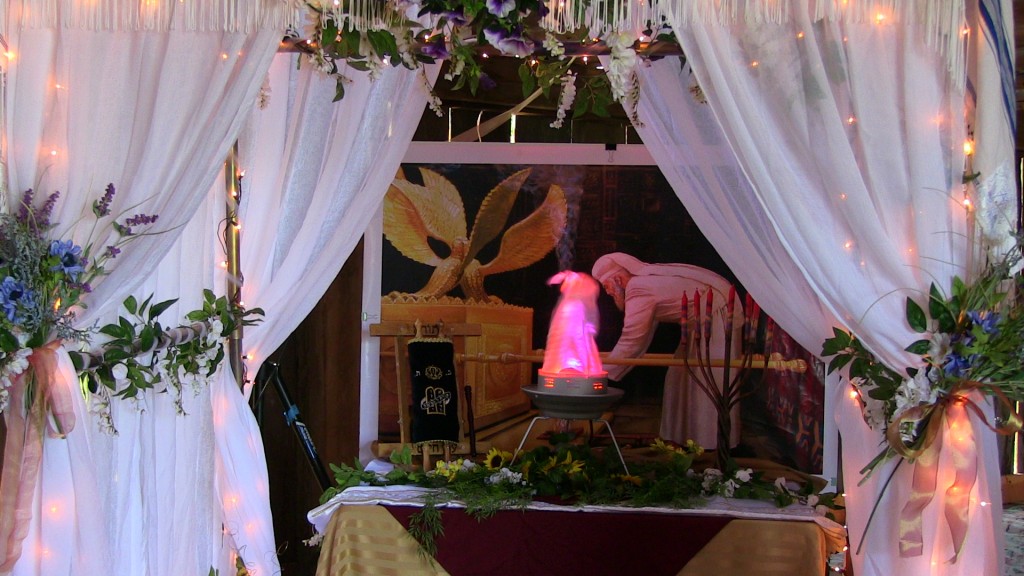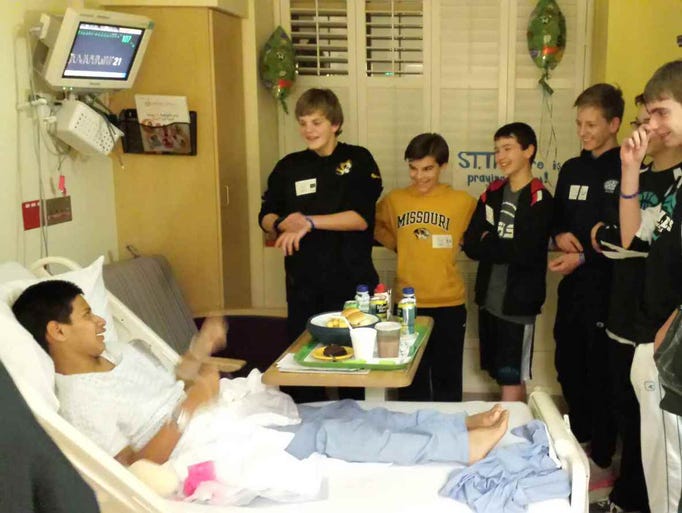But I say unto you, Love your enemies, bless them that curse you, do good to them that hate you, and pray for them which despitefully use you, and persecute you. (Matt 5:44)
Numbers 16:44–48, They fell on their faces. Moses was a true intercessor or intermediary between YHVH and the people, and he was a prophetic picture of Yeshua who is our spiritual Advocate (legal representative) before Elohim. YHVH wanted to destroy the people for their unending rebellion and murmuring, yet Moses and Aaron interceded on their behalf and many lives were saved.
How often are we inclined to write people off who have wronged us instead of interceding for them, praying for their salvation, healing, welfare or whatever their need may be? Do you go through life rendering good for evil? Where is the love of Elohim in all of this? It’s all about love—the love of YHVH in us toward a dying and hurting world. Aaron went among the dying people burning incense (verse 47). Incense is symbolic of prayer—the prayers of the saints (Rev 5:8; 8:4).
How much time do you spend each day in prayer for others—or is most of your time spent in selfish prayer? Do you spend time each day in meaningful prayer? It has been reported that the average American Christian spends as little as ten minutes a week in prayer, and the average pastor about ten minutes per day. Is it any wonder this nation is as spiritually sick as it is? Perhaps the quality of your life would improve if you spent more time each day in prayer and intercession.
Here are some scriptures that reveal the work of Yeshua the Messiah as the Mediator between Elohim (the Father) and man, and as the only way to the Father:
Yeshua says unto him, “I am the way, the truth, and the life; no man comes unto the Father, but by me.” (John 14:6)
Truly, truly, I say unto you, Whatsoever you shall ask the Father in my [Yeshua’s] name, he will give it to you. (John 16:23, see also 14:13, 14, 16; 16:24, 16.)
But these are written, that you might believe that Yeshua is the Messiah, the Son of Elohim; and that believing you might have life through his name. (John 20:3)
Therefore being justified by faith, we have peace with Elohim through our Master Messiah Yeshua by whom also we have access by faith into this grace wherein we stand, and rejoice in hope of the glory of Elohim. (Rom 5:1–2)
For the wages of sin is death; but the gift of Elohim is eternal life through Messiah Yeshua our Master. (Rom 6:23)
Who is he that condemns? It is Messiah that died, yes rather, that is risen again, who is even at the right hand of Elohim, who also makes intercession for us. (Rom 8:34)
But thanks be to Elohim, which gives us the victory through our Master Messiah Yeshua. (1 Cor 15:57)
Wherefore you are no more a servant, but a son; and if a son, then an heir of Elohim through Messiah. (Gal 4:7)
But now in Messiah Yeshua you who sometimes were far off are made nigh by the blood of Messiah. For he is our peace, who has made both one, and has broken down the middle wall of partition between us; having abolished in his flesh the enmity, even the law of commandments contained in ordinances; for to make in himself of twain one new man, so making peace; and that he might reconcile both unto Elohim in one body by the cross, having slain the enmity thereby: and came and preached peace to you which were afar off, and to them that were nigh. For through him we both have access by one Spirit unto the Father. (Eph 2:13–18)
In whom we have boldness and access [to the Father in heaven] with confidence by the faith of him [Yeshua]. (Eph 3:12)
For there is one Elohim, and one mediator between Elohim and men, the man Messiah Yeshua; who gave himself a ransom for all, to be testified in due time. (1 Tim 2:5–6)
Wherefore in all things it behoved him to be made like unto his brethren, that he might be a merciful and faithful high priest in things pertaining to Elohim, to make reconciliation for the sins of the people. (Heb 2:17)
Wherefore, set-apart brethren, partakers of the heavenly calling, consider the Apostle and High Priest of our profession, Messiah Yeshua. Who was faithful to him that appointed him, as also Moses was faithful in all his house. (Heb 3:1–2)
Seeing then that we have a great High Priest, that is passed into the heavens, Yeshua the Son of Elohim, let us hold fast our profession. For we have not an High Priest which cannot be touched with the feeling of our infirmities; but was in all points tempted like as we are, yet without sin. (Heb 4:14–15)
So also Messiah glorified not himself to be made an high priest; but he that said unto him, “You are my Son, today have I begotten you.” As he says also in another place, “You are a priest for ever after the order of Melchizedek.” (Heb 5:5–6)
Which hope we have as an anchor of the soul, both sure and steadfast, and which enters into that within the veil; whither the forerunner is for us entered, even Yeshua, made an high priest for ever after the order of Melchizedek. (Heb 6:19–20)
Now of the things which we have spoken this is the sum: we have such an High Priest, who is set on the right hand of the throne of the Majesty in the heavens; a minister of the sanctuary, and of the true tabernacle, which the Lord pitched, and not man.… But now has he obtained a more excellent ministry, by how much also he is the mediator of a better covenant, which was established upon better promises. (Heb 8:1–2, 6)
But Messiah being come an High Priest of good things to come, by a greater and more perfect tabernacle, not made with hands, that is to say, not of this building; neither by the blood of goats and calves, but by his own blood he entered in once into the set-apart place, having obtained eternal redemption for us.… And for this cause he is the mediator of the renewed covenant, that by means of death, for the redemption of the transgressions that were under the first covenant, they which are called might receive the promise of eternal inheritance.… For Messiah is not entered into the set-apart places made with hands, which are the figures of the true; but into heaven itself, now to appear in the presence of Elohim for us. (Heb 9:11–12,15,24)
By that will we have been sanctified through the offering of the body of Yeshua Messiah once for all. And every priest stands daily ministering and offering oftentimes the same sacrifices, which can never take away sins, but this man, after he had offered one sacrifice for sins for ever, sat down on the right hand of Elohim.… having therefore, brethren, boldness to enter into the holiest by the blood of Yeshua, by a new and living way, which he has consecrated for us, through the veil, that is to say, his flesh; and having an high priest over the house of Elohim. (Heb 10:10–12,19–21)
And to Yeshua the mediator of the recently born/youthful covenant, and to the blood of sprinkling, that speaks better things than that of Abel. (Heb 12:24)
My little children, these things write I unto you, that you sin not. And if any man sin, we have an advocate with the Father, Messiah Yeshua the righteous: and he is the propitiation for our sins: and not for ours only, but also for the sins of the whole world … I write unto you, little children, because your sins are forgiven you for his name’s sake. (1 John 21–2,12)

